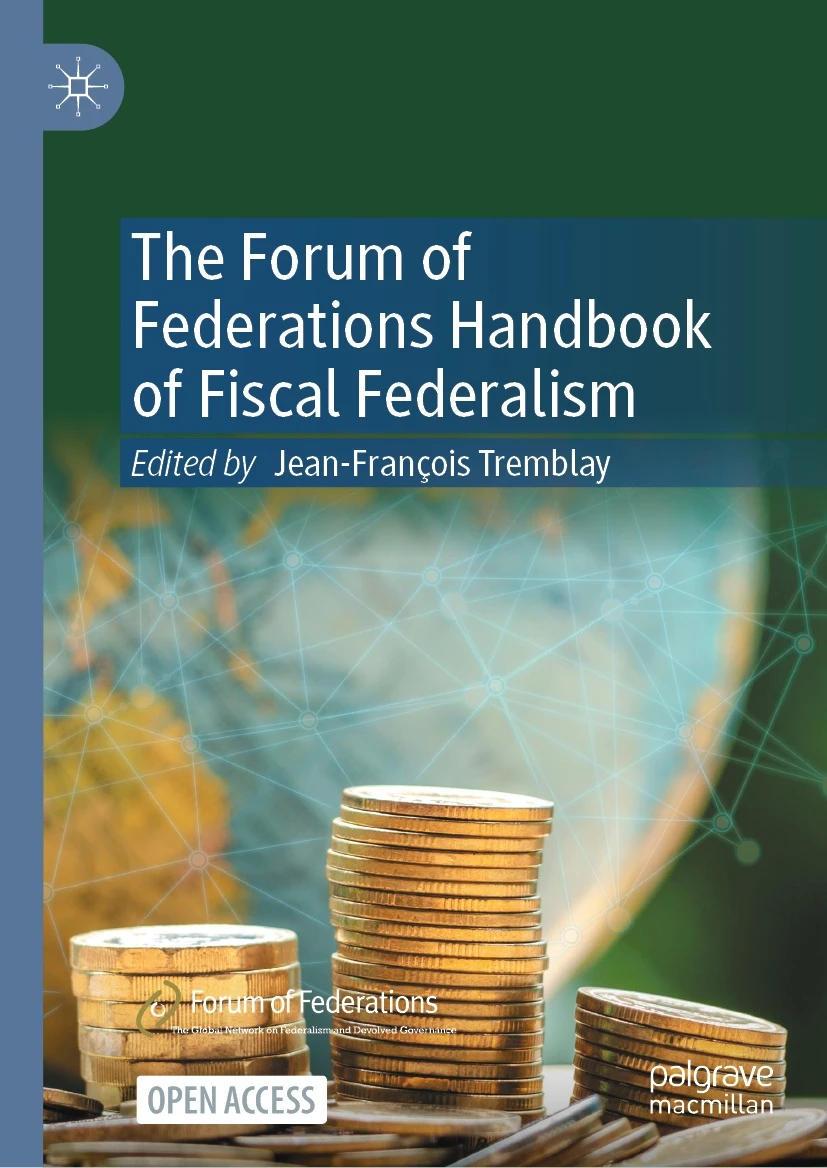Library

Language:
EnglishTopic:
Economy; Fiscal, Federalism, Finance, Fiscal Equalization, Fiscal Federalism, Fiscal RelationsCollection:
Thematic BooksCountries:
Australia, Brazil, Canada, Ethiopia, Germany, India, Italy, South Africa, Spain, Switzerland, United StatesAuthors:
Publication Year:
2023ISBN:
978-3-030-97257-8
This open access handbook compares fiscal federalism arrangements in eleven federal/ decentralized countries. Each chapter examines an individual country, laying out its constitutional design as relates to fiscal powers and the division of those powers between levels of government. Specifically, the analyses consider powers of taxation, spending, regulation, and more. Focusing on Australia, Brazil, Canada, Ethiopia, Germany, India, Italy, South Africa, Spain, Switzerland, and the United States, the contributors provide a fascinating account of how federal countries are confronting the traditional challenges of conflicts over division of fiscal powers while also coping with the ongoing challenges of globalization and citizen empowerment that arise from the information revolution.
As a companion to the Forum of Federations Handbook of Federal Countries 2020, this volume considers how relationships and roles in different orders of government are being reshaped, and shows how local solutions inspired by global principles help strengthen government accountability and improve citizens’ quality of life.
SPECIAL NOTE FROM THE FORUM:
This volume, The Forum of Federations Handbook on Fiscal Federalism, we consider to be an important contribution to the study of federalism. Bringing together scholars and practitioners from across the globe, it seeks to broaden and update current understandings of the state of fiscal federalism within 11 country case studies, and by so doing attempts to tease out some extrapolatory lessons that might be learned from the Forum of Federation’s signature comparative analysis.
The importance of the work that this volume sets out to do, is in broadening and in some cases updating the Forum’s work on fiscal federalism. This includes the book The Practice of Fiscal Federalism:
Comparative Perspectives (Global Dialogue on Fiscal Federalism volume 4), edited by Anwar Shah, almost 15 years ago, which in a similar fashion sought to examine a variety of country case studies. It also seeks to continue the work of the Forum of Federations in building on past scholarship and offering key insights that will be of use to both academics and practitioners.
In this latest overview of the state of fiscal federalism in different countries, we changed some of the country case studies, looking to incorporate more countries from Africa (Ethiopia, where the Forum has worked on many Development Assistance Projects over the years, and South Africa) as well as interesting new case studies, such as Italy (a unitary state albeit one that is highly decentralized). New authors were chosen in many instances, owing to retirements, work schedules, or a desire to incorporate new scholars in the field of fiscal federalism.
The Forum acknowledges all the work of the previous authors of the Global Dialogue volume, without whom we would not have the foundations upon which we are building, including Anwar Shah; Alan
Morris; Fernando Rezende; Robin Boadway; Jürgen Von Hagen; Govinda Rao; Shankaran Nambiar; Akpan Ekpo; Alexander Derugyin and Galina Kurlyandskaya; Bongani Khumalo and Renosi Mokate; Julio Lopez-Laborda, Jorge Martinez-Vasquez and Carlos Monasterio; Gebhard Kirchgassner; and William Fox.
-Felix Knüpling – Vice President, Programs

